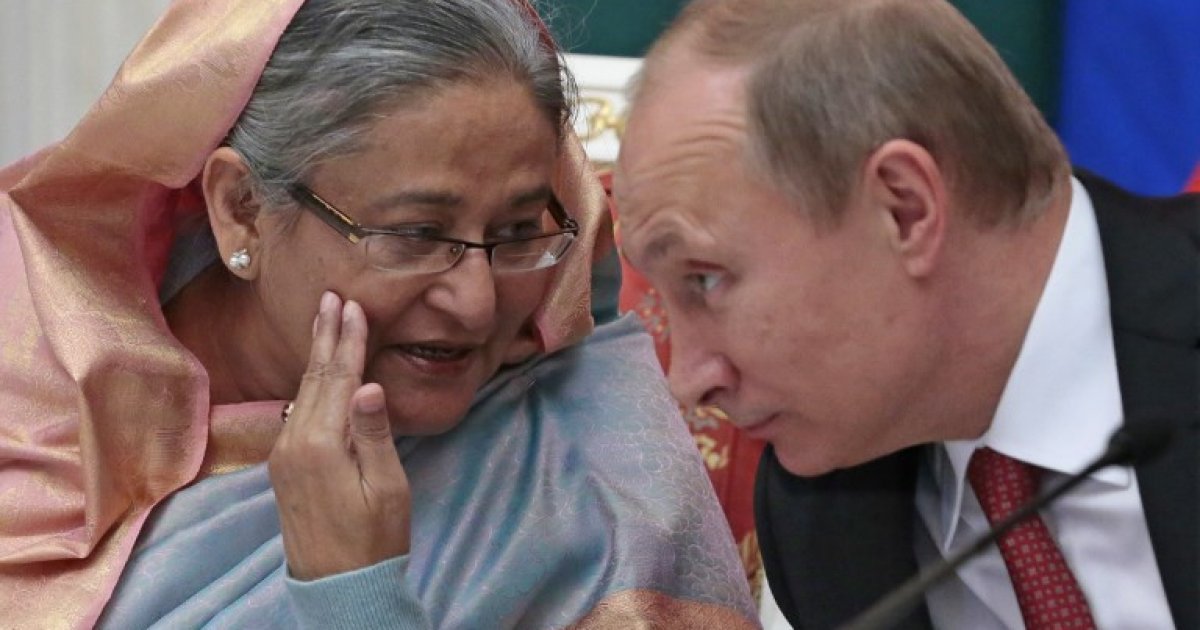Bangladesh buys $300 (in Chinese Yuan) Million Worth Nuclear Uranium from Putin’s Russia
Putin is constructing the biggest $12.65 billion Rooppur Nuclear Power Plant (RNPP) with 90% Russian financial support for Bangladesh. With U.S. and European sanctions barring Russia from much of the international banking system, Dhaka (Capital City of Bangladesh) has been scrambling for ways to settle repayments worth $110 million for the still under construction Rooppur power plant. But last week, a high-level delegation from Russia and Bangladesh’s Ministry of Finance agreed that the bills could be paid in yuan.
Ignoring questions from experts, the government has selected a Russian company as the lone uranium supplier for the lifetime of Bangladesh’s first nuclear power plant.
TVEL Joint Stock Company, a state-run uranium mining and nuclear fuel production entity of Russia, will supply the fuel to the Rooppur Nuclear Power Plant (RNPP) from 2027 till the plant remains in operation.
The uranium, which arrived in Bangladesh late last month, was handed over to the authorities at a ceremony in Ishwardi, where the plant is located, in the northern district of Pabna on Thursday. Bangladesh’s Prime Minister Sheikh Hasina and Russian President Vladimir Putin joined the ceremony — both by video link.

Putin said the plant will cover about 10% of Bangladesh’s energy consumption when launched. He said more than 20,000 people worked on its construction and that over 1,000 people were trained to operate it.
“Because of the sanctions against Russian banks,” Karmaker said, “we couldn’t process payments in U.S. dollars. Russia asked us to settle the payments in their currency, rubles, but that was not feasible. So we both opted for yuan.”
Rooppur, when completed, will be capable of generating 2,400 megawatts of power. It is to be a crucial element of Bangladesh’s plans to generate more energy and reduce its reliance on coal. The new arrangement, which should help ensure the project moves forward, comes amid growing calls from Global South nations and others to move away from the dollar and reduce the dominance of Western-led financial institutions.
Under the pact, Bangladesh will resolve payments with Russia via a Chinese bank, likely drawing on Dhaka’s own reserves of yuan. Russian beneficiaries will receive funds through China’s Cross-Border Interbank Payment System (CIPS), a yuan-driven alternative to the dollar-dominated SWIFT system.
There are few economic reasons for Bangladesh to engage in “a geopolitical adventurism against the West around trade currencies,” he added, noting that most of Bangladesh’s foreign currency earnings come from Europe, the U.S. and American allies. Bangladesh’s central bank has been building up the share of yuan in its foreign currency reserves since 2017, after the currency was included in the International Monetary Fund’s Special Drawing Rights (SDR) currency basket.
Russia has also granted a $1 billion loan to Bangladesh for the purchase of Russian-made weapons.
The deal was signed in Moscow during a meeting between Russian President Vladimir Putin and visiting Bangladesh Prime Minister Sheikh Hasina.
Details on the possible weapons purchases were not released, but reports say the new agreement included orders for air defense systems, helicopters and weapons for ground forces.
